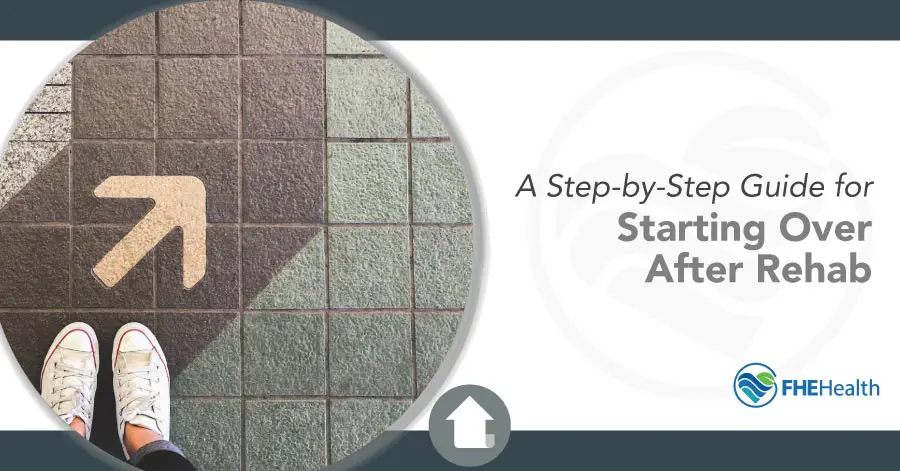The path to rebuilding life after addiction is a road filled with challenges, introspection, and the possibility of profound transformation. It involves charting a new course where old habits must be broken and replaced with behaviors conducive to a healthy, sober lifestyle. Individuals find themselves building resilience, often taking one day at a time, as they repair relationships, professional endeavors, and personal well-being. In this article, readers will gain insight into practical strategies that foster positive change and personal growth following the tribulations of addiction.
Embracing Change: The Journey of Post-Addiction Transformation

The path to recovery after addiction is marked by significant personal transformation, a process that demands tenacity and resilience. Individuals reeling from the grips of substance dependency face a critical choice; they can either forge a new existence or remain trapped by their former habits. The change required is profound, affecting every aspect of one’s life, from daily routines to interpersonal relationships.
Success often hinges on deconstructing old patterns and constructing new, healthier ones. Post-addiction recovery necessitates a tailored approach, as each individual’s encounter with substance use is unique, ticked on by different triggers, and reinforced by diverse psychological needs. Within this personal revolution, setting realistic goals serves as a foundation for sustainable progress.
Support networks become a pivotal element of any successful transition. Friends, family, and community groups often play invaluable roles, offering emotional sustenance and accountability. Their involvement can make the stark difference between relapse and continued sobriety, reinforcing the individual’s commitment to a rehabilitated life free from the shackles of addiction.
Part of this change may also include seeking professional help, such as enrolling in a heroin addiction facility that provides the necessary resources and guidance for individuals beginning their sober journey. Access to professionals who can render tailored treatment plans and offer continuous support is a critical factor in achieving long-term sobriety and fostering a new sense of normalcy post-addiction. To find local options, search online for ‘heroin addiction facility in Scottsdale.’
Rediscovering Purpose: Setting Goals for a Sober Future
After overcoming addiction, individuals often find themselves at a crossroads, needing to establish a new direction for their lives. The clarity that arrives with sobriety allows for setting meaningful goals, encompassing personal growth, career aspirations, and relationship rebuilding. It’s when one can assess past mistakes clearly and craft a blueprint for a positive and fulfilling future.
Many find that their journey to recovery opens doors to new passions and the rediscovery of old interests. It cultivates an environment where learning flourishes, whether through self-taught avenues or pursuing formal education in relevant fields like educational leadership that could redirect one’s career toward helping others. To explore educational opportunities in this area, you can Google ‘educational leadership masters.’ These goals serve as a solid foundation for the tower of their new life.
Creating professional objectives can also be pivotal in grounding individuals in their newfound sobriety. Articulating a vision for one’s career trajectory can imbue daily efforts with purpose and provide tangible milestones to work toward. Whether advancing in a current job or embarking on a new vocational journey, professional growth becomes a key component of one’s recovery.
At the heart of this transformative phase is the reconstruction of relationships strained or lost to addiction. Goals centred around restoration and trust-building become central to personal development. Through consistent, heartful actions and improved communication, recovering individuals work to mend the bonds with friends and family, acknowledging this as part of their holistic healing process.
Strategies for Building a New Life After Addiction

Those who overcome addiction often find that their journey of rebuilding life involves developing a structured daily routine. Establishing a predictable pattern of everyday activities aligns with the newfound need for stability and helps solidify their commitment to sobriety.
Mental health care is integral to recovery. It emphasizes the importance of acknowledging and addressing emotional and psychological challenges. Individuals benefit from continuous therapeutic engagement that fosters healing and personal insight.
Financial management skills become imperative as persons in recovery strive to regain autonomy and repair past monetary damages caused by addiction. Effective budgeting and strategic financial planning are essential to restore economic health and independence.
Engagement in community service offers a pathway to give back, instilling a sense of purpose and belonging. Such activities promote personal growth and societal connection, aiding individuals in forging meaningful community roles.
Altogether, the journey of rebuilding life after addiction is a testament to resilience, self-discovery, and the transformative power of change. By embracing new goals, seeking support, and committing to personal growth, individuals pave the way for a fulfilling, sober future that honors their strength and perseverance.



